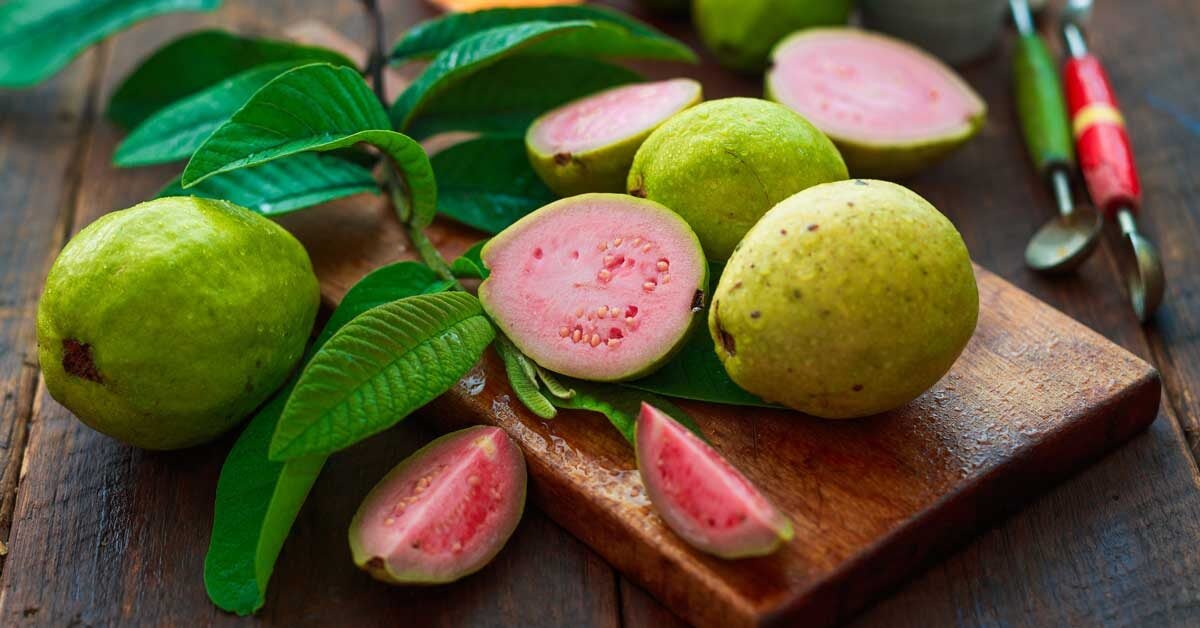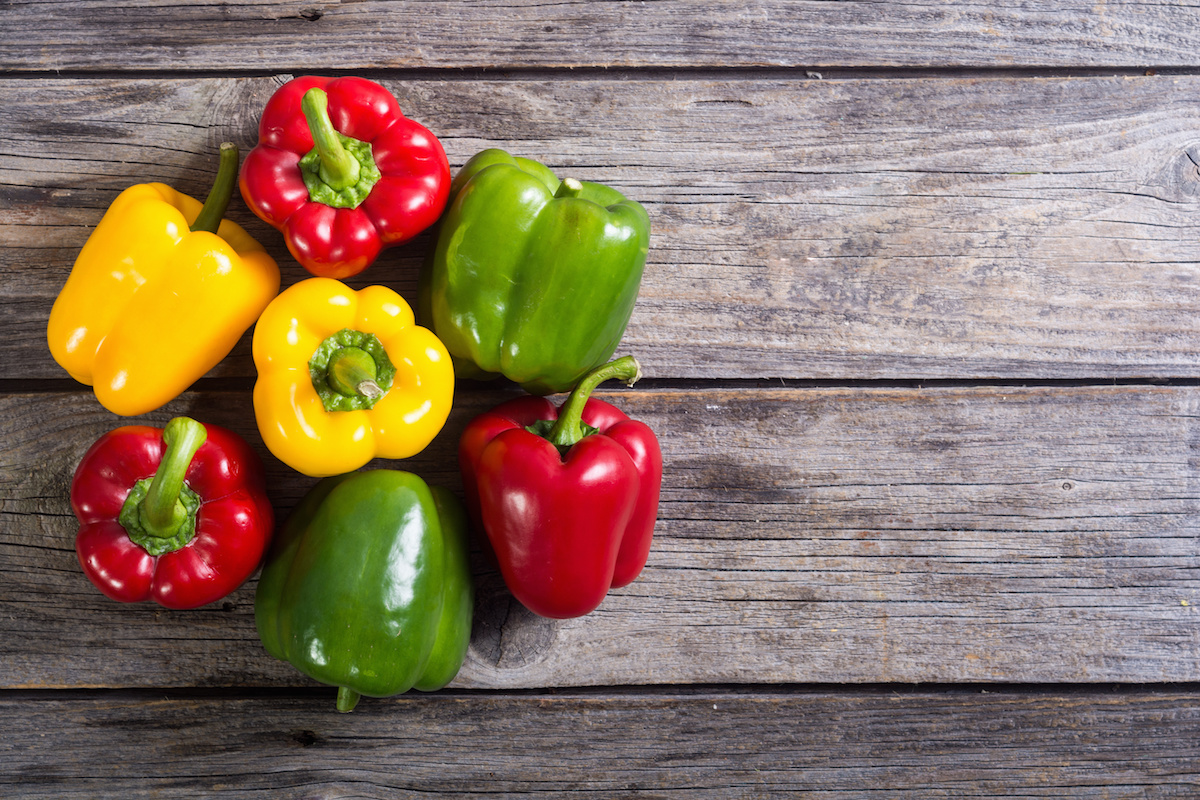Vitamin C, also known as ascorbic acid - plays a very important role in the human body. Vitamin C assists in the fight against infections such as colds, wound healing, necessary for the creation of collagen (a protein that connects and supports bodily tissues such as skin, bones, tendons, muscles, and cartilage), enhances iron absorption, fights cataracts by increasing blood flow to the eyes.
In addition, Vitamin C is also known as an antioxidant, helping to protect cells from free radical damage.
Therefore, the supplementation of Vitamin C for the body from daily foods is extremely necessary.
According to research, below are 8 fruits that contain vitamin C - extremely healthy. Let's find out with CouponUpto Team!
1. Guavas
Guava a subtropical fruit, containing four times more vitamin C than an orange. Guava is also rich in vitamin A, folic acid, and minerals: potassium, copper, manganese. Guava is also a good food because it is high in fiber, low in saturated fat, low in cholesterol and sodium salt. The amount of vitamin C in guava is about 200mg for 100g of guava. To be good for the immune system, you must eat a lot of guavas.

Additionally, eating guava has also been linked to lower blood pressure, lower bad cholesterol, and increased levels of good cholesterol.
Guava is a great addition to your daily healthy diet.
See more: 11 Health Benefits Of Guava Leaves
2. Kiwifruit
According to experts, the small kiwifruit is one of the most nutritious fruit in the world, it contains high amounts of vitamin C at about 70mg per 100g, potassium, antioxidants, omega-3 fatty acids. Kiwi fruit should be eaten early when it is ripe and only cut before eating as cutting out for a long time will reduce vitamin C.
Two medium-sized kiwifruits can provide about 230% of the recommended daily intake of vitamin C, almost double that of oranges. Much research also shows that vitamin C can enhance immunity, fight stress and aging. Vitamin C also promotes wound healing and helps iron absorption for strong bones, blood vessels, and teeth.
In addition to vitamin C, kiwi also contains a rare form of the oil-soluble vitamin, vitamin E. This is an extremely powerful antioxidant and is being studied for its protective effects against cancer-causing cancer planning.
One study found that children who ate 5 to 7 servings of kiwi or citrus fruits a week were less likely to wheeze than those who ate less of these fruits. Shortness of breath will also decrease, along with a reduction in the severity of wheezing and a decrease in coughing at night.
In addition, kiwifruit also contains a substance called Lutein. Lutein is a type of carotenoid that, according to some studies, can prevent age-related blindness. Lutein can also protect the eyes from destruction by many different types of free radicals.
In addition to eating kiwifruit directly, you can try the following to enrich your kiwi menu: Add kiwifruit to a salad, cut a few slices of kiwi, and eat with yogurt or use kiwi with strawberries for baking.

3. Strawberry
Strawberries are an excellent source of Vitamin C for the body. It contains a modest amount of vitamin C at about 80mg per 100g of strawberries.
The antioxidant properties in strawberries can help prevent cataracts. Strawberries also contain the antioxidants Lutein and Zeathacins. Whether used in any form: From fresh strawberries to dried strawberries, strawberry jam, or syrup ... this fruit also brings a lot of health benefits thanks to its rich nutrient content with antioxidants.

4. Pineapple
In addition to being incredibly tasty, pineapples are also loaded with nutrients.
Especially, pineapple contains very much Vitamin C. One cup of pineapple juice can provide up to 113 mg of Vitamin C needed by the body.
In addition, pineapple also has the ability to destroy inflammation, antibacterial, promote bone development, prevent cardiovascular diseases. According to some studies, pineapples are also rich in calcium - and extremely beneficial substance that helps restore and enhance the best bone health, not degenerating over time.
Eating pineapple also enhances your eyesight. Beta-carotene in pineapple will prevent and delay leukemia, bright and healthy eyes even when you turn middle age.
Moreover, pineapple will help your skin fade dark spots, heal acne scars, prevent aging, brighten pink, and effectively exfoliate dirt.
You can eat ripe pineapple as a dessert, drink pineapple juice or make a salad to change the taste.

See more: 8 Health Benefits Of Taking Pineapple And Its Juice
5. Orange
Oranges are natural vitamin C-rich fruits not to be missed in this list. According to one study, 100 grams of oranges contain 50 mg of vitamin C. One cup of orange juice every morning will keep your skin young and radiant.
In addition, oranges are also used to treat cough and aid digestion. Eating oranges can prevent stomach ulcers and acid reflux.
Even orange peels have many uses. Dry the orange peel, then put it in a scented bag to hang in the bedroom, kitchen, or closet. This way not only stimulates you to sleep but also repels mosquitoes and cleans the air.
With the above amazing benefits, remember to add oranges to your daily menu!

6. Tomato
Tomato is a familiar fruit used as a food. Tomatoes, when ripe, are bright red, contain a lot of vitamin A and vitamin C. In 100g fresh ripe tomatoes will meet 13% of the daily requirement for vitamin A, 8% of the vitamin B6 requirement, from 33-50%. Vitamin C needs.
Tomatoes are a great source of vitamins A and C to help prevent night blindness and increase your eyesight. A recent study found that tomatoes' vitamin A content can prevent macular degeneration, a serious disease that can lead to blindness. Furthermore, tomatoes can reduce the risk of cataracts.
Tomatoes contain antioxidants such as lycopene, lutein, and zeaxanthin. The cancer prevention benefits of tomatoes are much better when cooked with olive oil.
Don't forget to add tomatoes to your family's daily diet!

Read more: 4 Benefits Of Tomatoes For The Skin
7. Papaya
One papaya provides 187.7 mg of vitamin C, which is 3 times the recommended daily intake of vitamin C.
Papaya contains vitamins A, K, B, calcium, and zinc in papaya is also extremely good. Eat ripe papaya mixed with yogurt or fresh milk for a nutritious drink.
Papaya is also good for the digestive system because of its high fiber content.
Papaya is rich in fiber, potassium, and vitamins, which will help reduce blood fat, prevent cholesterol oxidation and limit platelet plaques due to this process clinging to blood vessel walls. This helps to reduce the risk of cardiovascular diseases. Blood clots in the body will slow down blood circulation, block the arteries.
In some cases, it can cause a stroke or heart attack.
For young men, a diet rich in beta-carotene (found in papaya) will help protect the body against the risk of prostate cancer.

8. Bell Peppers
These colorful bell peppers are one of the most nutritious foods you can add to your meals. Average bell pepper can provide 342 mg or 570% of the daily recommended amount of vitamin C.
In addition to providing Vitamin C, bell peppers are also capable of preventing the symptoms of cataracts and the formation of freezing blood.
In addition, bell peppers also contain an abundant amount of iron, which helps to improve iron deficiency in the body.
This is a very good fruit for the body, you can eat raw bell peppers or combine it with other iron-rich foods such as red meats, spinach to ensure your body is full of iron, avoiding the risk muscle is anemic.

Read more: 5 Immune Boosting Foods To Get You Through Covid 19 Pandemic
Conclusion
Fruit is a wonderful thing that nature bestows. Don't forget to eat fruit every day to improve your health.
In addition to supplementing vitamins from foods. You can also take some oral pills that provide additional essential vitamins for your body. Don't forget, we always give you a lot of discount codes, especially on important occasions like Mother's day discount code, Chrismas promo code, ...
Some online Store provides Vitamins at CouponUpto:

